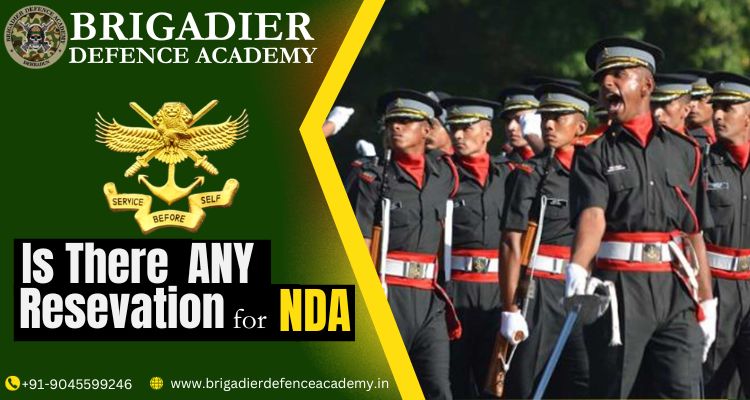Is there any reservation in NDA?
Reservation in NDA is a hot topic of debate in India. Some people believe that there should be reservation for Scheduled Castes (SCs), Scheduled Tribes (STs), and Other Backward Classes (OBCs) in the National Defence Academy (NDA), while others believe that the NDA should remain merit-based.
What is the current status of reservation in NDA?
Currently, there is no reservation in NDA on the basis of category, caste, or income. The NDA selection process is completely merit-based, meaning that candidates are selected based on their performance in the written exam and the Services Selection Board (SSB) interview.
Arguments in favor of reservation in NDA
Proponents of reservation in NDA argue that it is necessary to ensure that all sections of society have an equal opportunity to serve in the Indian armed forces. They point out that SCs, STs, and OBCs are currently underrepresented in the armed forces, and that reservation would help to bridge this gap. They also argue that reservation would help to promote social justice and equality in India. By giving SCs, STs, and OBCs an equal opportunity to serve in the armed forces, reservation would help to break down caste barriers and create a more inclusive society.
Why is there no reservation in the NDA?
There are a few reasons why there is no reservation in the NDA. First, the NDA is a tri-service academy. This means that it trains cadets for all three branches of the Indian Armed Forces. The NDA selection process is designed to identify candidates who have the potential to be successful officers in all three branches of the military.
Second, the NDA is a merit-based institution. This means that all candidates are selected on the basis of their performance in the written exam and Services Selection Board (SSB) interview. The NDA selection process is designed to ensure that the best and brightest candidates are selected to serve in the Indian Armed Forces.
Third, the NDA is a combat training institution. Cadets at the NDA are trained for the harsh realities of combat. The NDA selection process is designed to identify candidates who have the physical and mental toughness to withstand the rigors of combat.
Arguments against reservation in NDA
Opponents of reservation in NDA argue that it would undermine the merit-based selection process and lead to the selection of less qualified candidates. They argue that the NDA is a premier training institution for the Indian armed forces, and that only the best and brightest candidates should be selected.
They also argue that reservation would be unfair to general category candidates, who would be competing with fewer seats. They point out that general category candidates already have to face a lot of competition to get into the NDA, and that reservation would make it even more difficult for them to be selected.
Supreme Court’s view on reservation in NDA
In 2022 the Supreme Court of India dismissed a plea seeking reservation in NDA on the basis of caste. The court said that it cannot segregate the armed forces on caste basis.
NOTE: If you are looking for Defence Academy in Dehradun so Brigadier defence Academy is the best coaching institute for you.
Conclusion
The debate over reservation in NDA is likely to continue. There are strong arguments on both sides of the issue. Ultimately, it is up to the government to decide whether or not to implement reservation in NDA.
Additional thoughts
In addition to the arguments presented above, there are a few other things to consider when discussing reservation in NDA.
First, it is important to note that the NDA is not just a military academy. It is also a prestigious educational institution. NDA cadets receive a rigorous academic education, and they go on to graduate with a Bachelor of Arts or Bachelor of Science degree.
Second, it is important to consider the unique nature of the armed forces. The armed forces are responsible for protecting the nation from external and internal threats. They operate in a highly disciplined and hierarchical environment.
In light of these factors, it is important to ensure that any reservation policy implemented in the NDA does not compromise the quality of training or the operational effectiveness of the armed forces. One possible solution would be to implement a reservation policy that is based on economic criteria rather than caste. This would ensure that all candidates, regardless of their caste or social background, have an equal opportunity to serve in the NDA, provided they meet the necessary economic criteria.
Another possible solution would be to implement a reservation policy that is limited to certain categories of candidates, such as children of armed forces personnel or candidates from rural areas. This would help to ensure that the NDA is representative of all sections of society, without compromising the quality of training or the operational effectiveness of the armed forces. Ultimately, the decision of whether or not to implement reservation in NDA is a complex one. There are many factors to consider, and there is no easy answer.







